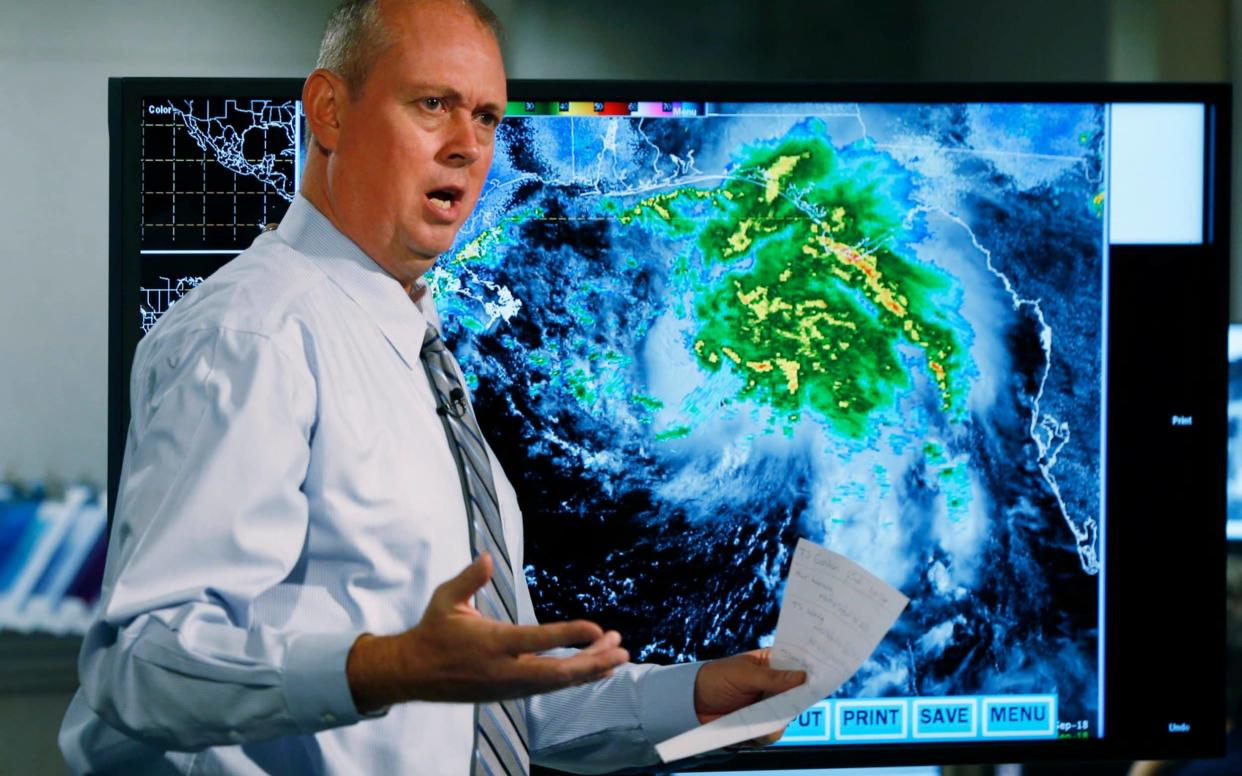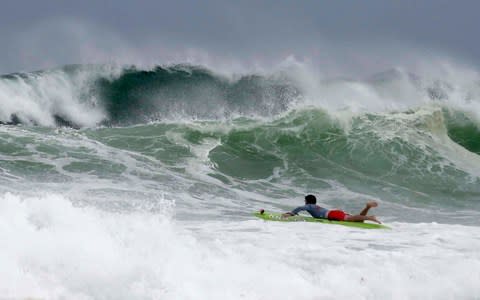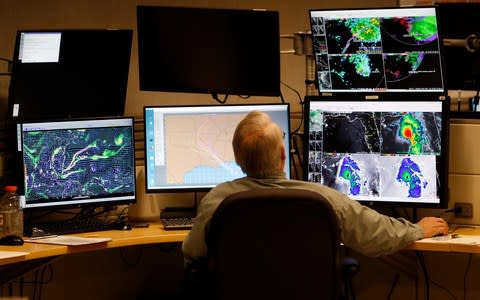Storm Gordon hits the Gulf Coast amid hurricane warning

Heavy rain and winds from fast-moving Tropical Storm Gordon began pelting the Gulf Coast on Tuesday evening as forecasters warned the storm could become the second hurricane to hit the region in less than a year.
Skies quickly turned dark gray as storms overshadowed the port city of Mobile, Alabama, just before nightfall.
Metal chairs were lashed together atop tables outside a restaurant in what's normally a busy entertainment district, and a street musician played to an empty sidewalk as rain began falling.
Forecasters said conditions would further deteriorate westward to New Orleans as the stormed neared shore.
Families along the coast filled sandbags, took patio furniture inside and stocked up on batteries and bottled water in the final hours before Gordon's expected landfall sometime Tuesday evening.

The staff at The Hotel Whiskey in Pass Christian, Mississippi, only about a block from the Gulf of Mexico, carried out their pre-storm preparation ritual. The hotel restaurant planned to stay open Tuesday evening as usual, fortified by sandbags to keep out torrential rains, the manager said.
Meanwhile, a few people remained on a Mississippi beach, soaking in the sun before the tropical rain bands became more numerous.
A hurricane warning was in effect for the entire Mississippi and Alabama coasts with the possibility Gordon would become a Category 1 storm.
The National Hurricane Centre predicted a "life-threatening" storm surge of 3 to 5 feet (0.9 to 1.5 meters) along parts of the central Gulf Coast.
Flooding also was a risk. As much as 8 inches (20 centimetres) of rain could fall in some parts of the Gulf states through late Thursday as the tropical weather moves inland toward Arkansas.
By Tuesday afternoon, the storm was centered 95 miles (155 kilometers) southeast of Biloxi, Mississippi, with top sustained winds of 70 mph (110 kph). Forecasters said it was possible Gordon's winds might meet the 74 mph (120 kph) threshold to be a hurricane before making landfall later Tuesday.
The last hurricane to strike the US was Nate last October, coming ashore in Biloxi with 75 mph (120 kph) winds.
Governors in Alabama, Mississippi and Louisiana all declared states of emergency to better mobilize state resources and National Guard troops for the storm. Mississippi shut down a dozen Gulf Coast casinos. Workers on at least 54 oil and gas production platforms were evacuated.
Gordon became a tropical storm Monday near the Florida Keys.
Mayors of barrier islands in the storm's path warned that their communities might get cut off from the mainland.
"When you get the higher waves, water starts splashing across. Sometimes it starts pushing not only water across but debris, logs and things of that nature, which makes it very treacherous to get across," said Jeff Collier, mayor of Dauphin Island, Alabama.

Gordon was poised for only a glancing blow to New Orleans, where Mayor LaToya Cantrell said the city has "the pumps and the power" needed to protect residents.
Authorities issued a voluntary evacuation order for areas outside the city's levee protection system.
Gordon was not the only storm being watched by forecasters. Hurricane Florence was some 2,400 miles (3,900 kilometers) away from the US, and another potential storm was likely to form not far off the coast of Africa and head east.
The National Hurricane Center said it is way too early to know if either of those storms will have any impact on land.
"It's the peak of hurricane season. Now is the time to get your plans all set," Hurricane Director Ken Graham said.

